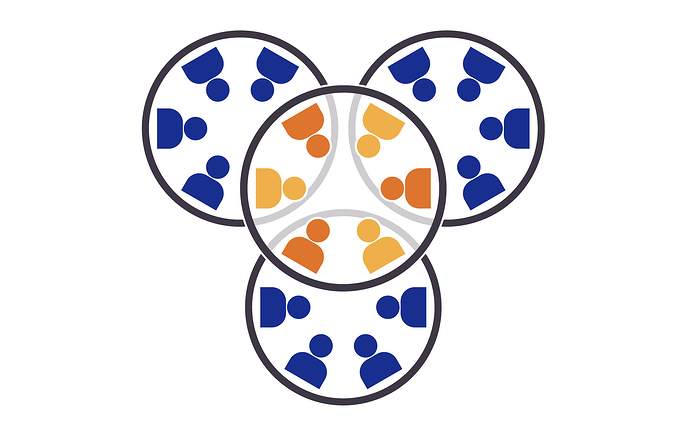Implementing sociocracy in an organization involves a phased process and includes the following steps:
- Understanding the concept of sociocracy:
It is important for leaders and members of the organization to educate themselves about the principles and practices of sociocracy. This can be done through attending workshops, seminars, training sessions, or studying materials and books about sociocracy.
- Forming a general and a mission circle:
Sociocracy emphasizes the decentralization of power and active participation of all members of the organization. It is recommended to form a general operational circle and a mission circle consisting of members who share the vision of sociocracy and are willing to learn and implement its principles in the organization.
- Defining organizational circles:
Sociocracy is based on the idea of autonomy and distributed responsibility. The organization needs to be divided into organizational circles, each with clearly defined domain, aims and responsibilities. These circles can range from general/macro levels, such as departments, to more focused/micro levels, such as project teams.
- Making decisions by consent:
In sociocracy, decisions are not made by hierarchical leaders but through consent within the organizational circles. Within a circle, members express their viewpoints, discuss, and reach a solution acceptable to all. The decision-making process can be facilitated through structured processes. In sociocracy, people are looking for decisions that are “good enough for now” and “safe enough to try”.
- Selections and delegating responsibilities:
Members of a circle should have the opportunity to participate in selection processes to select or be selected for assuming different roles and responsibility within the the circle. Selection is made through consent and is based to specific and consented role qualifications. Delegation of responsibilities should be clear and accompanied by the corresponding authority.
- Feedback and continuous improvement processes:
Sociocracy promotes continuous learning and constant improvement. It is important to establish feedback processes between circles and among members of the organization. These processes facilitate the exchange of information and help identify and solve problems collaboratively in an organization based on a circular hierarchy structure. Clear communication channels help organizations go on smoothly.
- Evaluation and adaptation:
Periodically, the organization needs to evaluate the implementation of sociocracy and make adjustments based on the results achieved. Being open to change and continuously adapting to the organization’s needs and its members’ needs is crucial for learning and progress.
Implementing sociocracy in an organization can be a complex process and requires time, commitment, and active participation of all members involved.
It is important to pay attention to communication and building trust within the organization to support this transition towards a more collaborative and decentralized approach to decision-making.
If you would like to share your comments or personal reflections on this topic, please feel free to do so in a comment below. Thank you.
Best wishes.
